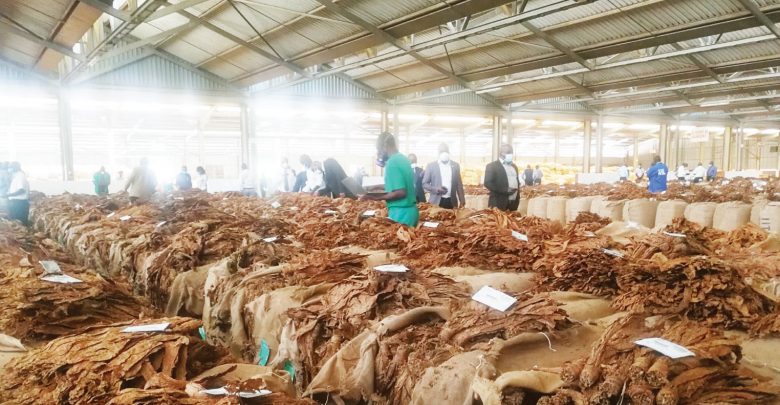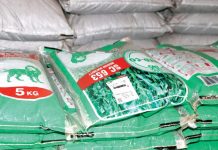Africa-Press – Malawi. It is no secret that tobacco is no longer a golden leaf for Malawi. The biting whip from the World Health Organisation against smoking has negatively affected the country and others which depend on the leaf for economic sustainability.
However, we need to be prudent to unearth some resources that we have to replace tobacco on the international market amid Covid pangs. Many governments have taken stringent public health measures to limit the spread of the coronavirus.
These public health measures have caused severe economic disruptions that impact the foreign direct investment (FDI) decisions of firms. Governments have also taken significant economic policy actions to forestall or cushion the economic consequences of the public health crisis. The eventual impact on FDI flows will depend on the success of both these public health and economic policy responses.
FDI could play an important role in supporting economies during the economic recovery following the pandemic. Evidence from crises has shown that foreign-owned affiliates, including small and medium enterprises, can show greater resilience during crises thanks to their linkages with, and access to the financial resources of, their parent companies.
FDI could be particularly important for emerging and developing economies given that other sources of international financing, including portfolio investment, have fled these economies. Unfortunately, it appears that the impacts of the pandemic on FDI flows to these economies may be particularly severe. For example, the primary and manufacturing sectors, which account for a larger share of FDI in many of these economies than in most developed economies, have been particularly hard hit by the pandemic.
Contributions to the recovery from FDI can go beyond financing. Multinational enterprises (MNEs) are generally larger, more research and development (R&D)- intensive and more productive than purely domestic firms. As such, they are well-positioned to help governments deal with the effects of the pandemic.
Investment Promotion Agencies (IPAs), charged with attracting and facilitating FDI, are also working with their clients and local networks of foreign affiliates to facilitate business collaborations and assist government efforts to combat the pandemic. Going forward, cross-border partnerships and collaborations between companies can facilitate finding long-term business solutions, such as ways to resume production while protecting workers’ health.
In the longer term, the pandemic may lead companies to shift the geographic allocation of their foreign operation. For example, MNEs may review and potentially shorten their global value chains to protect themselves from supply-chain disruptions; alternatively, they could seek geographic diversification to reduce exposure to location-specific shocks and reduce costs to be able to deal better with crises.
Such shifts could have important implications for countries’ economic prospects as MNEs are responsible for a large share of global value-added, trade, employment and R&D (OECD, 2018; Cadestin et al., 2018).
Beyond direct impacts, FDI can also have potentially important indirect effects on the local economy. For example, it can have second-order effects on the economy when locally-established MNEs are entering buyer-supplier relations or competing with local firms, hiring and training local workers, and facilitating exports.
However, there are reasons to have some scepticism regarding the role that FDI can play. The pandemic hit at a time when FDI flows were at the second-lowest level recorded since 2010 in the aftermath of the global financial crisis (for more information on developments in FDI flows through the end of 2019, see the April 2020 edition of FDI in Figures).
In addition, corporate debt was at record levels at the time the pandemic hit. OECD research shows that the stock of non-financial corporate bonds was at an all-time high at the end of 2019 and that this stock “has lower overall credit quality, higher payback requirements, longer maturities, and inferior covenant protections” compared to previous debt cycles (Celik at al (2020).
High levels of debt could limit the ability of companies to survive the Covid crisis, let alone support their foreign affiliates or pursue new investments. Rising debt levels and liquidity constraints could also be factors driving companies to divest some of their foreign operations (Borga et al, 2020).
OECD projections show that, even under the most optimistic scenario, FDI flows will likely fall by at least 30 percent in 2020 compared to 2019 before returning to pre-crisis levels by the end of 2021.
FDI is expected to decline sharply as a consequence of the pandemic and the resulting supply disruptions, demand contractions, and the pessimistic outlook of economic actors. This decline is accentuating and accelerating the steady decline of FDI flows observed in the past five years.
Their immediate impact on FDI flows will come from a reduction in reinvested earnings. However, equity capital flows will also be impacted as companies put some mergers and acquisitions and greenfield investments on hold.
Reinvested earnings have become an increasingly important component of FDI flows, accounting for more than half of FDI inflows in 2019. Two factors determine the amount of reinvested earnings: the earnings of direct investment enterprises and the share that the direct investor chooses to reinvest.
In the first and second quarters of 2020, the earnings of large MNEs fell, but the impact varied greatly across sectors. Countries like Malawi should look at latent sectors and commodities that can help boost the economy other than tobacco alone.






